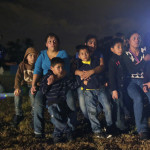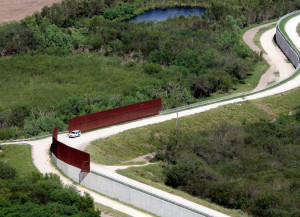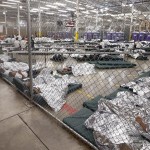
Immigrants on their way to Ellis Island in New York for a naturalization ceremony last week. Credit John Moore/Getty Images
One of the more thoughtful deep-dives into the immigration reform issue is making the rounds via The New York Times. Written by Eduardo Porter, it is one of the few to note that U.S. immigration policy and enforcement may not drive a person’s decision to come to the United States. He also notes the huge population differences brought about by the current trends:
“What the U.S. government is doing in terms of border enforcement, mass deportations and other restrictive policies just isn’t relevant to the decision to stay home,” noted the Mexican Migration Field Research and Training Program of the University of California, San Diego, which has interviewed thousands of immigrants and potential immigrants in communities across Mexico.”
And:
“Immigrants, their children and grandchildren have accounted for 55 percent of the country’s population growth since 1965, according to the Pew Research Center. Then, the country was 84 percent white, 4 percent Hispanic and less than 1 percent Asian. Today it is 62 percent white, 18 percent Hispanic and 6 percent Asian. Unauthorized immigrants, brought close to zero after the legalization wave of the 1980s, are back at an estimated 11 million.”
Read the story here:
Immigration Reform: Disparate Ideas, Disparate Futures


